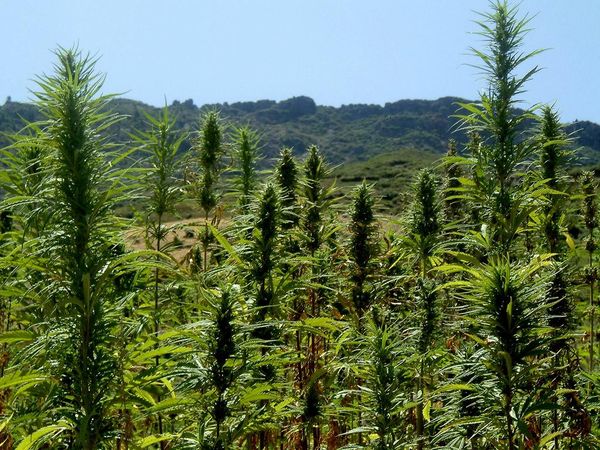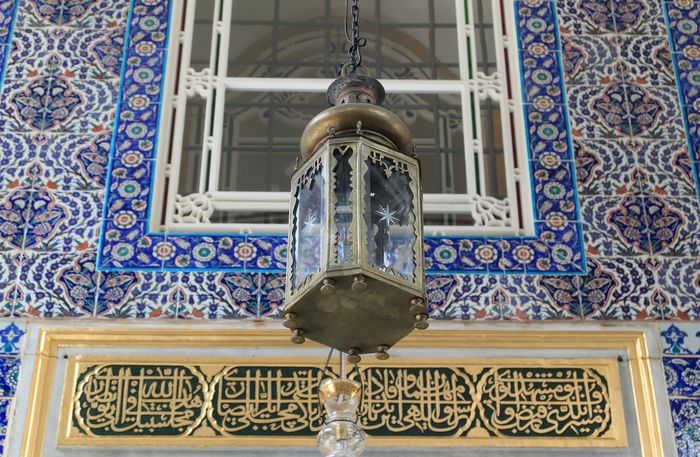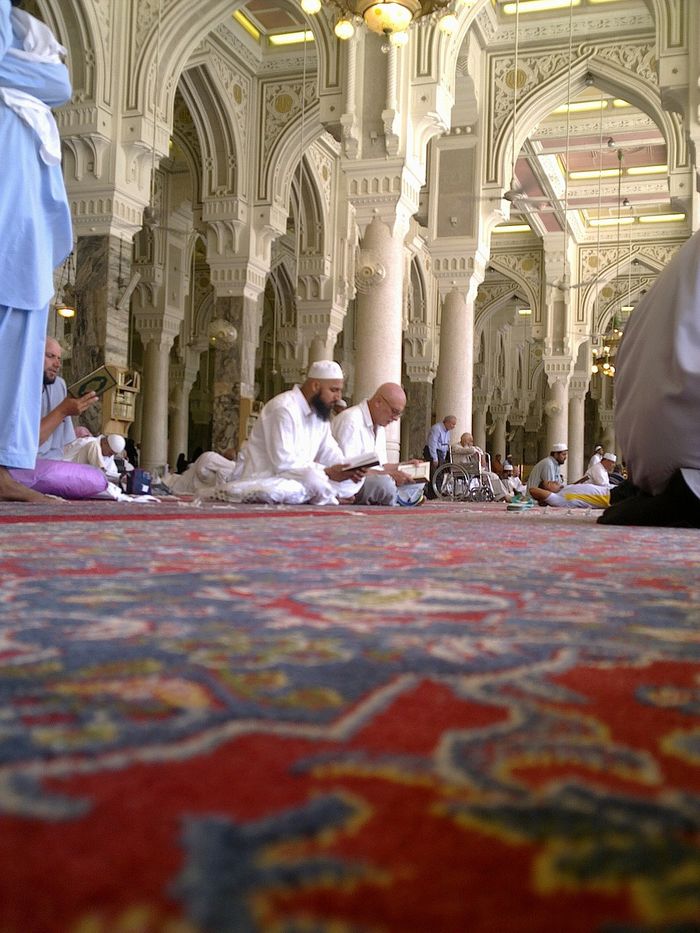- Islam forbids the consumption of cannabis, which it considers it a toxic substance (due to the psychoactive effects of THC). This creates very delicate situations in countries where the plant was cultivated before the Muslim expansion.
- Some regulations are so stringent that they castigate commerce in the plant with capital punishment. In Syria, the Islamic State threatens those working in nearby Lebanese fields. Morocco, meanwhile, has considered regulating it in order to undercut drug trafficking.

While regulation and legalisation begin to make headway in different areas around the world, in the Islamic countries advances are coming slower. A society closely tied to its religion and warier of the consumption of certain substances means that the citizens of these nations face much more uncertainty with regards to cannabis. Actually, the Quran never mentions cannabis, and it seems that Mohammed never addressed the issue of the plant. The situation is further complicated by the fact that many Muslim countries grow cannabis crops, later converted into hashish to supply the rest of the world.
The lessons of Islam, key at this point in time
Islamic doctrine states that the use of cannabis is prohibited, classified as a toxic substance, all of which are unacceptable according to the religion. This supposed "toxicity" is due to the psychoactivity of its THC.
Thus, the history of cannabis in the Islamic world has always been problematic. A long time ago governments harboured more permissive policies with regards to the cultivation and production of cannabis, and even allowed the establishment of different types of businesses. Such was the case for a long time in Afghanistan, along with Morocco one of the greatest producers of hashish today. For centuries the authorities permitted production, but the mass arrival of tourists in search of the substance, and pressure exerted by the United States, forced them to establish law prohibiting the cultivation of cannabis and poppy.

The law is largely irrelevant in some regions of the country, however, where tribal culture and the ancestral norms by which clans govern themselves trump legislation. Thus, in some places where these norms have existed since even before Islam, conflicts arise that are difficult to resolve. Such is the case of the borderland with Pakistan, in the north of the country, where most hashish is produced. The contradictions are such that the Taliban have been accused both of destroying producers' crops and taking advantage of them to finance themselves through illegal traffic.
In other countries, the documented presence of cannabis going back centuries and their present situations prove ironic. A case in point is Turkey, where it was grown around 1,000 BC, and there are texts by doctors and by Greeks speaking of its use there circa 100 BC. Its use was actually continuous until it was declared illegal in 1890. Now the country is one of the greatest proponents of worldwide prohibition, and the possession of the cannabis plant is punishable by up to five years in jail. These kinds of sentences also exist in Tunisia and the United Arab Emirates.
In Dubai, one of the Emirates hosting the most foreign citizens, cannabis possession is punishable by up to 4 years in jail, and distribution, up to 25. In addition, numerous international bodies have criticised the authorities for torture perpetrated at prisons. As if this were not enough, at the international airport blood and urine controls can be conducted to detain those exhibiting certain levels of cannabis. Some cases have generated a lot of attention, like that of the UK's Keith Brown, arrested for four years for carrying 0.003 grams of cannabis in the sole of his shoe.
In Saudi Arabia the situation is no better. The use and personal possession of cannabis is punishable by six months of jail time or more (in the case of foreigners, it can mean deportation). Commerce or smuggling, meanwhile, can even result in capital punishment.
Iran, a different story
In what today is Iran there was documented and permissive use for centuries. Around 1524, however, when the Safavid (Muslim) dynasty conquered what was Persia, the consumption of cannabis and alcohol, among other products, was prohibited. Now grass is increasingly popular in the country, and the authorities tend to look the other way, pursuing substances considered hard drugs; while the punishment for consuming alcohol is 99 lashes, there are no orders to jail or physically punish those with small amounts of cannabis. Those trafficking in marijuana, on the other hand, can be sentenced to death.
In Egypt, in spite of being prohibited (with documented medical use), consumption is part of people's day-to-day lives. Something similar is true in Lebanon, where possession is prohibited, but it is cultivated across large areas of the country, and it may be consumed, as long as it is not in public.

The danger of cultivating cannabis
As if the authorities were not a big enough concern, there is also the fear of dealing with radical groups in many of these areas. This is the plight of Muslim Syrian refugees who have dared to cultivate cannabis in an area of Lebanon. The fertile valley of Beqaa, in the centre of the country, had for years welcomed workers who, after a few months of cultivating, returned to their homes in Syria. The expansion of the Islamic State, however, represents a danger, as their members consider the mere fact of having had anything to do with the plant (even if it is never consumed) an affront to Islam. Thus, many have chosen not to return home, to avoid death. It must be understood that work in these fields earns them money to send to their families in Syria (a country that also penalises possession or cultivation with prison time), in the hope that they will reunite some day.
Supporting legalisation and therapeutic use
Fortunately, the authorities of some countries in this area are considering moves like the plant's legalisation or regulation. Such is the case in Morocco, whose national representatives in 2013 already considered the legalisation of the production of cannabis for medical and industrial uses, although nobody has sought to overturn the state's prosecution of recreational consumption.
In this country, the greatest producer of cannabis and hashish in the world, according to the UN (surpassing Afghanistan and Jamaica) cannabis cultivation boasts a long tradition. Once again, however, it is one that clashes with the Islamic religion. If its consumption were approved, this would represent an opportunity for tens of thousands of families who dedicate themselves to this traditional crop, as they would have the support necessary to face drug traffickers.
In 2014 a proposal was presented calling for the creation of a state agency in charge of controlling the production of the plant, as at this time 10% of Morocco's GDP (Gross Domestic Product) stems from the export of cannabis resin. Nothing has come of it, however, as Morocco's own government is part of the problem, and also the solution, controlling the faucet of Moroccan hashish bound for Spain, and, from there, to the rest of Europe.
The hope with medical cannabis
In light of all this, it seems that the only chance for the image of cannabis improving in the Islamic world is by focusing on the therapeutic aspects of cannabis. Judging from the Internet and the sites that Muslims use to clear up their questions regarding Islam, it seems that cannabis for therapeutic purposes would be allowed, as long as it is demonstrated that it is actually used as medicine and there is no other alternative remedy permitted by the religion.
Numerous studies have demonstrated the plant's efficacy in the treatment of numerous ailments, so there should be plenty of arguments to be made supporting legalisation. Undercutting drug trafficking should also be an additional incentive when it comes to regulating a production on which many families depend. The strong role played by religion in society, however, means that there is still a long row to hoe.



Comments from our readers
There are no comments yet. Would you like to be the first?
Leave a comment!Did you like this post?
Your opinion about our seeds is very important to us and can help other users a lot (your email address won't be made public).